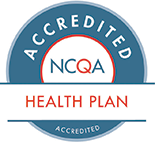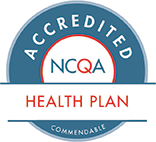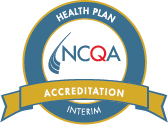When it’s needed
Coverage for gastric bypass is for plan members who are 18 years or older. In addition, there is a six month waiting period that must be met before the surgery can be performed.
For more details on how services are covered, please see your handbook, or call the Health Navigator team at 866-923-0409.
You must use one of the approved Centers of Excellence in order to receive this benefit. There is no out-of-network benefit.
To be eligible for gastric bypass surgery, you must have completed these eligibility requirements in the last six months:
- Medical and psychological evaluation
- A modest weight loss of 5 percent over six months
- Dietary counseling and evaluation
- Documented participation in one of the following programs:
Minimum of six month participation in OEBB Weight Watchers Program or a recognized commercial behavioral weight management program. The treatment program must include hypocaloric diet changes, nutrition education, and physical activity and behavior change strategies. Minimum six month participation in a physician, nurse practitioner, physician assistant, registered dietitian or licensed behavioral therapist supervised weight loss program, with or without obesity pharmacotherapy.- Three or more primary care visits over a minimum of six months with a weight management treatment plan in the medical record
- Participation and completion of an eight-week health education, weight management program
Medical record documentation that none of the previous weight loss efforts have been sustained and sufficient to address the co-existing medical condition(s) and/or co-morbidity conditions applicable to the patient.
Surgery requirements
Surgeries must be performed at a Center of Excellence Network recognized by OEBB.
- You must have a Body Mass Index (BMI) greater than or equal to 35 with one or more co-existing conditions that can be life-threatening:
- Sleep apnea uncontrolled on Continuous Positive Airway Pressure (CPAP) or inability to use CPAP with an Apnea/Hypopnea Index (AHI)greater than 15 on a sleep study or inability to use CPAP with an AHI greater than 5 and documentation of excessive daytime sleepiness, impaired cognition (ability to think clearly), mood disorders or insomnia, hypertension, ischemic heart disease or history of stroke
- Congestive heart failure (CHF) or cardiomyopathy with a participating cardiologist recommendation for bariatric surgery
- Obesity hypoventilation and PC02 greater than or equal to 45 and a participating pulmonologist recommendation for bariatric surgery
- Diabetes mellitus uncontrolled with conventional medical therapy that includes high dose insulin (at least 2 units/kilogram/day) together with an insulin sensitizing oral agent i.e. Metformin or Pioglitazone (or documented intolerance to insulin sensitizing oral agents) and HbA1c persistently above 7.5
- Severe hypertriglyceridemia (greater than 1000 mg/dl) uncontrolled with conventional medical therapy that includes trial of at least two fibrate drugs and therapeutic doses of omega-3 fatty acid (six grams daily), as well as alcohol avoidance.
- Hypertension (high blood pressure) with blood pressure greater than 140/90 (130/80 in the presence of diabetes or renal (kidney) disease) documented on two consecutive visits despite use of three antihypertensive medications including a diuretic (increases urination), unless contraindicated
- Refractory extremity edema with ulceration documented by a participating primary care provider
- End-stage renal disease with difficulty dialyzing documented by a participating nephrologist (kidney specialist)
- Pseudotumor cerebri documented by a participating neurologist
- BMI is greater than 40 Kg/m2 with one or more of the above co-morbid conditions and/or have symptomatic degenerative (deteriorating) joint disease of hip, knee or ankle with abnormal X-rays
- BMI is greater than 50 Kg/m2 (no co-morbid condition required)
- BMI is greater than 60
- If your BMI is greater than 60 and/or you are 60 years of age or older, the appropriateness of performing the surgery will be made individually based on rehabilitation potential and the physician and surgeon’s judgment regarding the surgical risk and the likelihood of benefit
- If your BMI is between 60 and 70, decisions regarding surgical timing will be made individually based on rehabilitation potential and the physician and surgeon’s judgment regarding surgical risk and benefit
- Surgery is not felt to be appropriate for extreme levels of obesity (BMI greater than 70) and non-surgical strategies for weight loss will be recommended
Questions?
If you can't find an answer, please feel free to contact our Customer Service Customer Service Customer Service
Questions?
If you can't find an answer, please feel free to contact our Customer Service
Employer web tools
Benefit Tracker
Check benefits, eligibility, incentive and utilization
Rate finder is now in the Producer Dashboard
Log in with your current username and password to create quotes for groups up to 50.
Producer DashboardLog in






Hello.
We have exciting news to share. ODS is changing its name to Moda Health.
Moda comes from the latin term "modus" and means "a way". We picked it because that's what we are here to do: help our communities find a way to better health.
Together, we can be more, be better.
Please select the state you live in, or the state where your employer is headquartered, so we can tailor your experience:

Hello.
Please select the state you live in, or the state where your employer is headquartered, so we can tailor your experience:
Privacy notice
We use cookies and similar analytics technologies to understand how visitors interact with our website, improve performance, and enhance user experience. These tools help us analyze traffic patterns and usage trends.
We do not collect or store personal information, track users for advertising purposes, or use social media plugins.
By continuing to use this site, you acknowledge our use of cookies for analytics purposes only. For more information, please refer to our Privacy Policy.
Changing your location to Oregon
You can return to your previous location in the site header.


